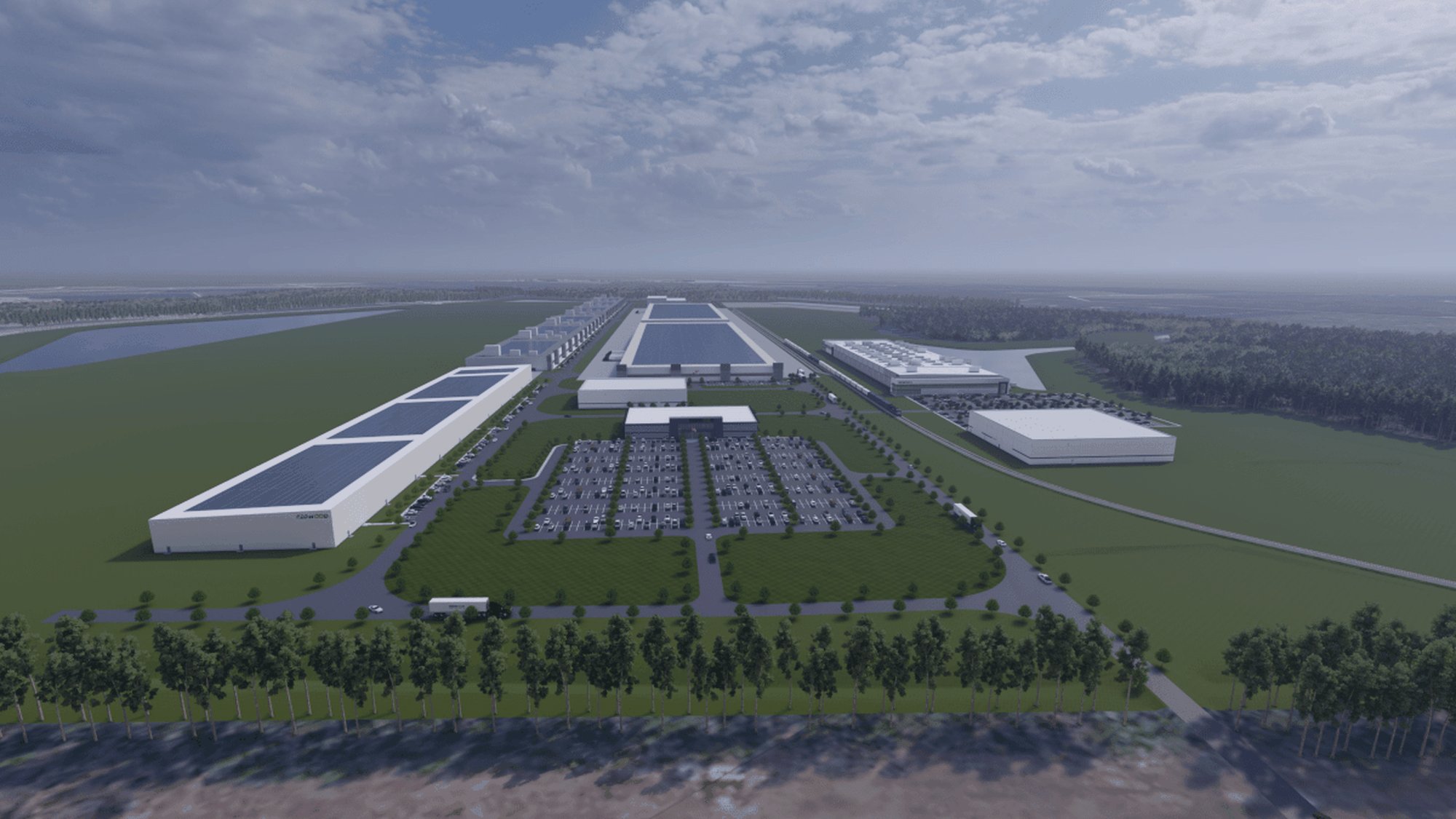

A 600 acre, 1,500 employee electric vehicle battery recycling facility will soon break ground outside of Charleston, South Carolina, providing a major boost in clearing one of the biggest hurdles currently facing EV adoption. Once completed, Redwood Materials’ Battery Materials Campus will break down end-of-life lithium-ion batteries into their raw materials such as copper, cobalt, and nickel within its 100 percent electric factory facilities. From there, new cathode and anode products can be built and subsequently used once again in future EV manufacturing, thus extending material lifespans while lowering overall vehicle costs for consumers.
According to Redwood’s estimates, the campus will eventually be able to provide 100 GWh in recycled components per year—enough to annually power an estimated 1 million EVs—and can eventually scale upwards as demand grows. The startup already has a similar facility in Nevada, which announced its own expansion earlier this year.
[Related: Why solid state batteries are the next frontier for EV makers.]
Redwood’s newest project is located in what is becoming known as America’s Battery Belt—a region stretching from the Midwest to the Deep South increasingly focused on the production of electric vehicles and EV components. Green energy and EV advocates argue that shifting production stateside is crucial for economics, the environment, and human rights. Currently, the vast majority of EV parts such as the rare earth minerals needed for batteries are mined overseas in countries like China, resulting in massive ethical and ecological concerns. As Engadget notes, the company alleges its methods lowers battery component production’s CO2 emissions by around 80 percent when compared to current standard Asian supply chain outputs.
Charleston’s geographic location is a strategic choice, given its ports. As CEO JB Straubel explained in a recent interview with The Wall Street Journal, there currently aren’t enough recyclable EV materials to meet industry demands, and importation is still a necessary step in the process. Straubel estimates that between 40 and 60 percent of its Redwood Materials’ South Carolina facility products will be made from recycled materials.
[Related: You throw out 44 pounds of electronic waste a year. Here’s how to keep it out of the dump.]
One of the biggest hurdles in electric vehicle adoption is the e-waste generated from depleted “end-of-life” lithium-ion batteries. Thankfully, industry pushes such as Redwoods’ latest venture furthers our capability of breaking down these power sources and recycling the bulk of what would otherwise be relegated as potentially harmful trash. Construction on South Carolina’s Battery Materials Campus is set to begin early next year, with an eye to begin initial recycling processes by the end of 2023.
